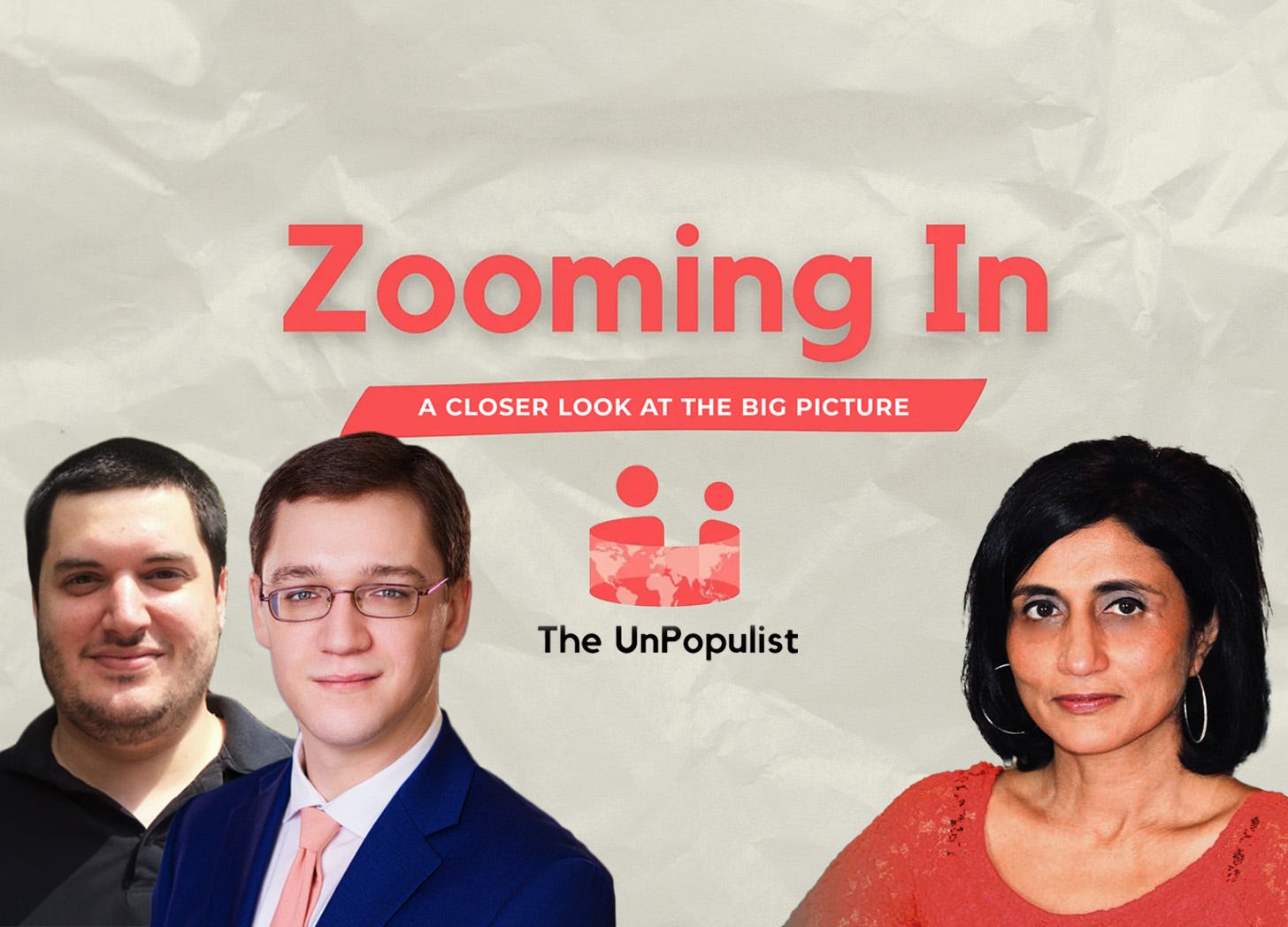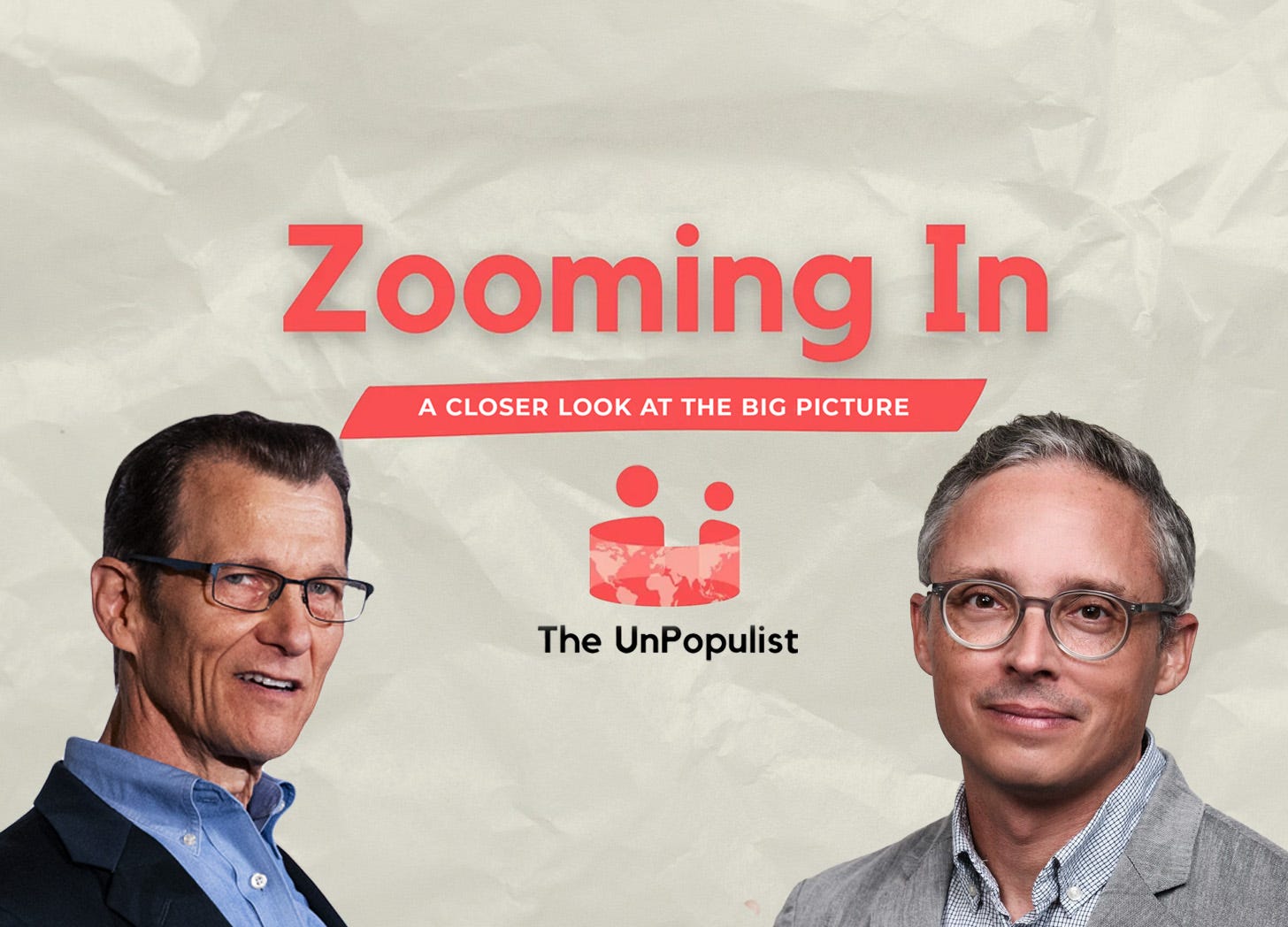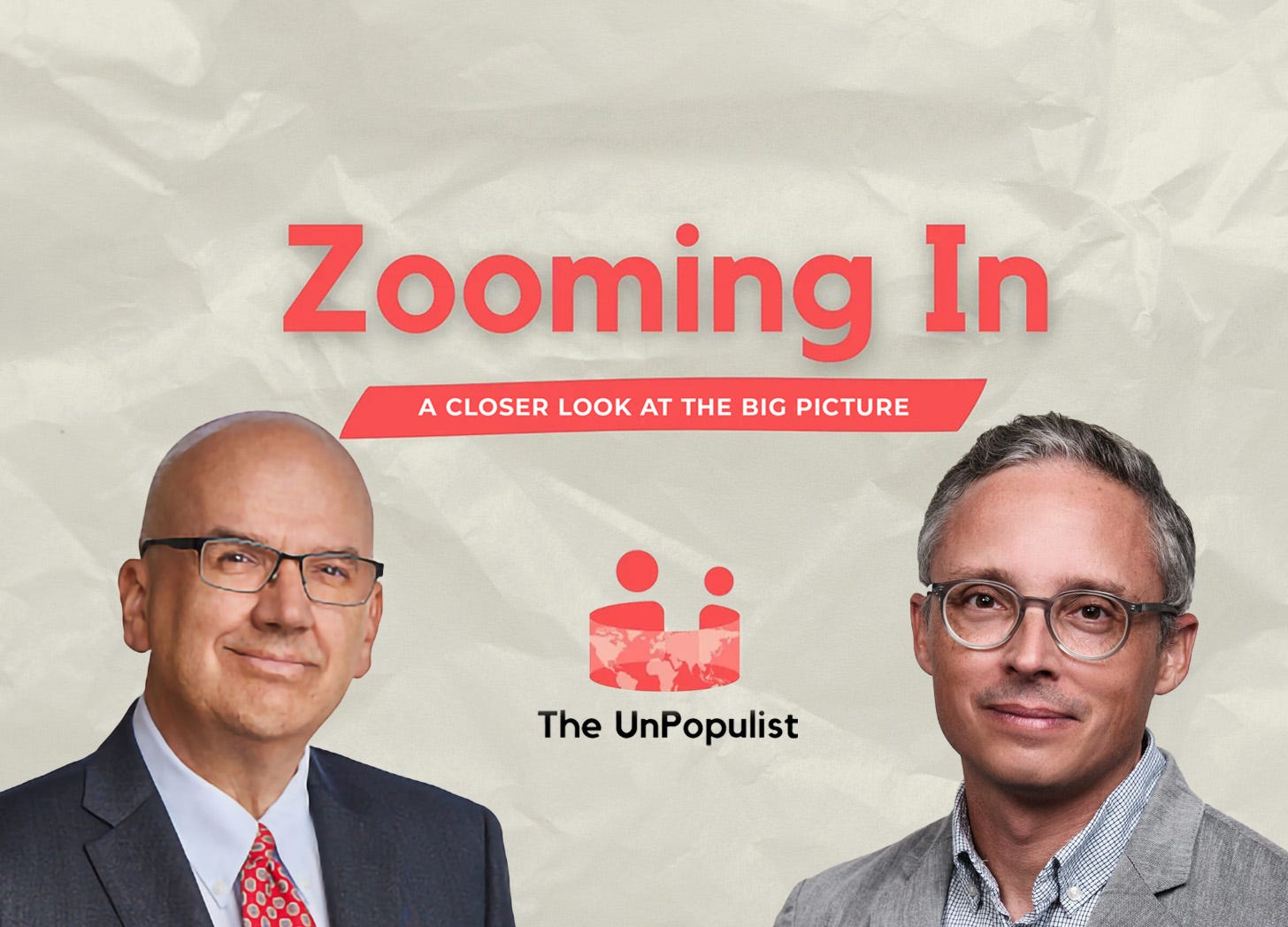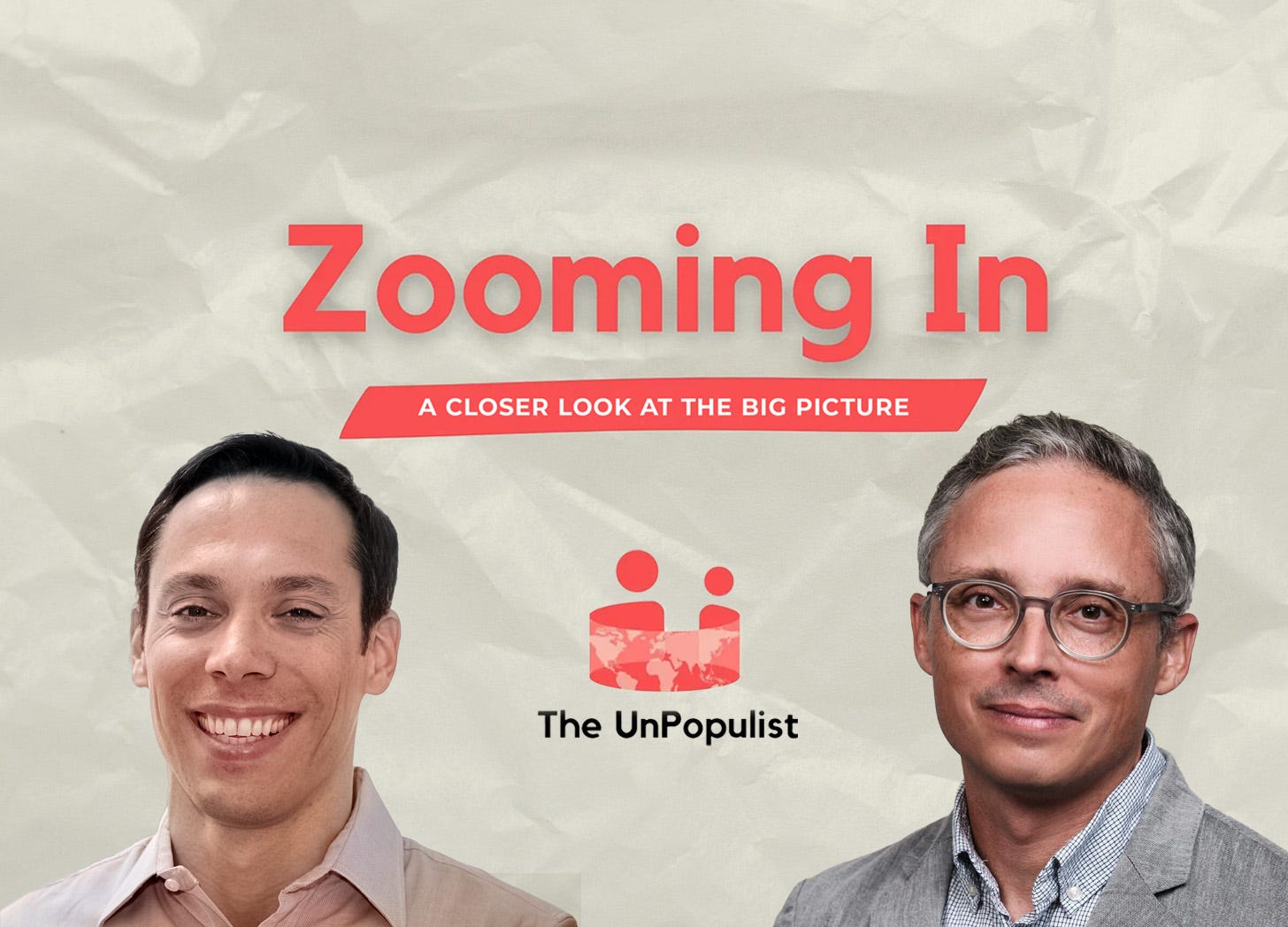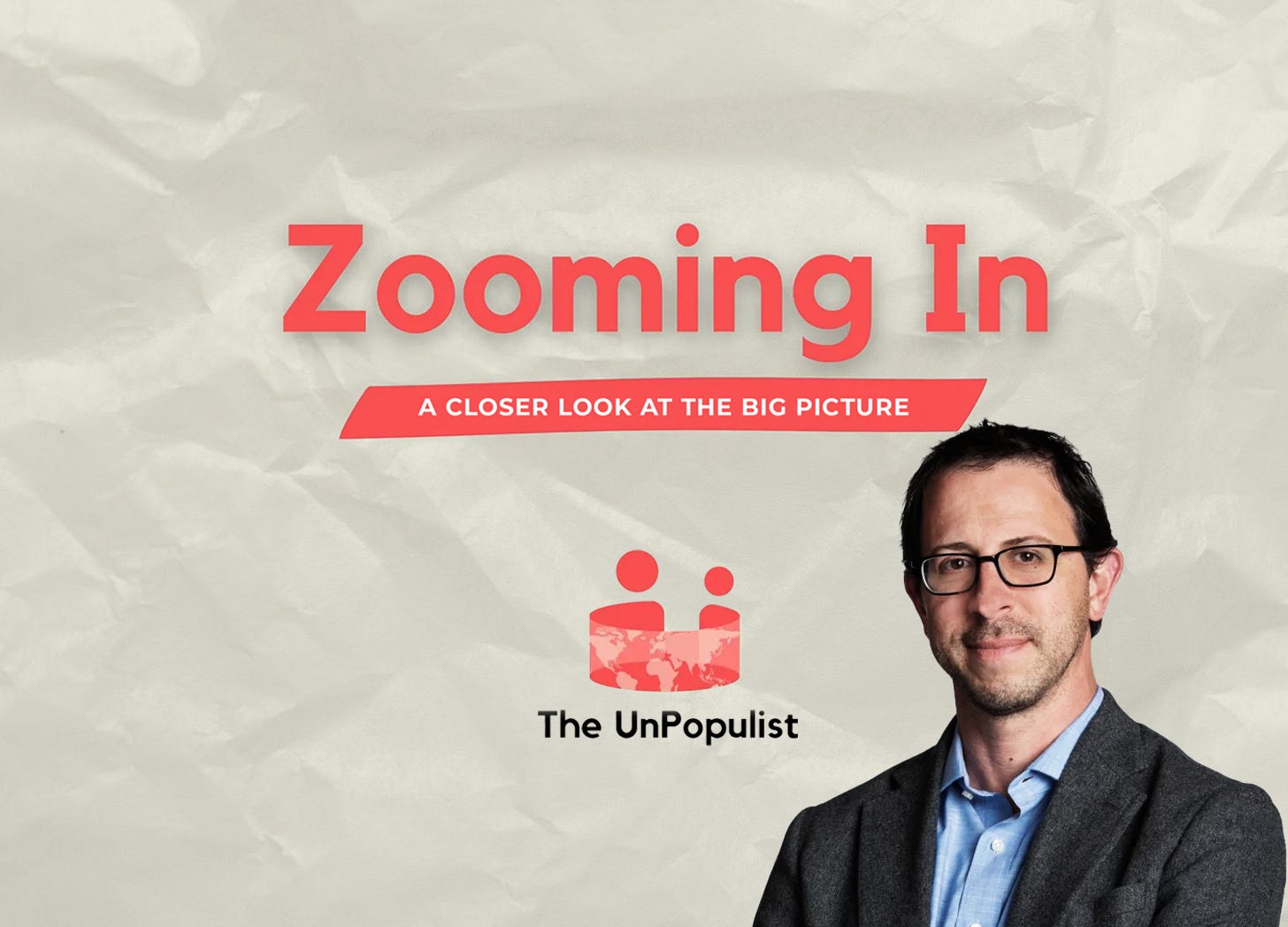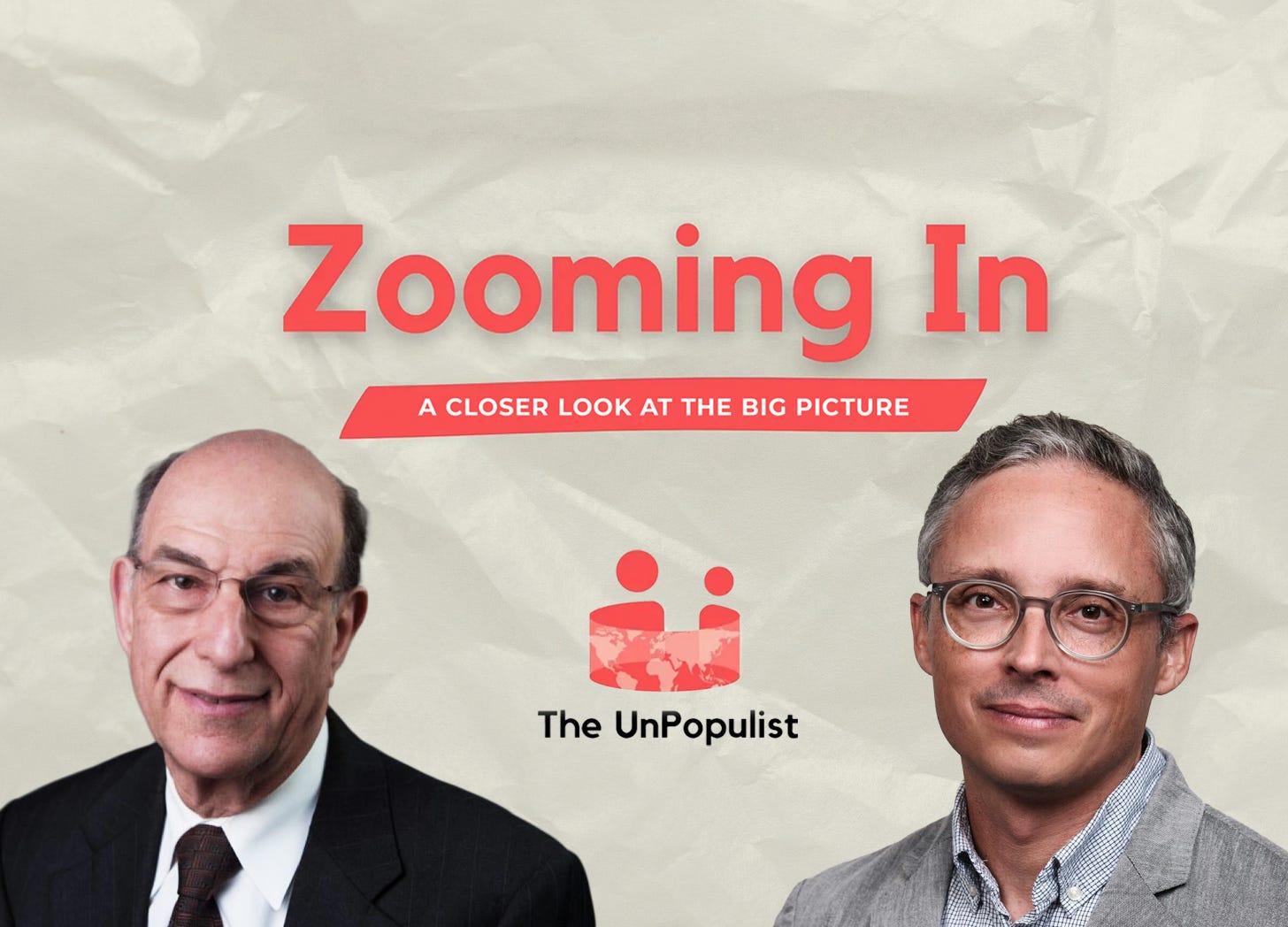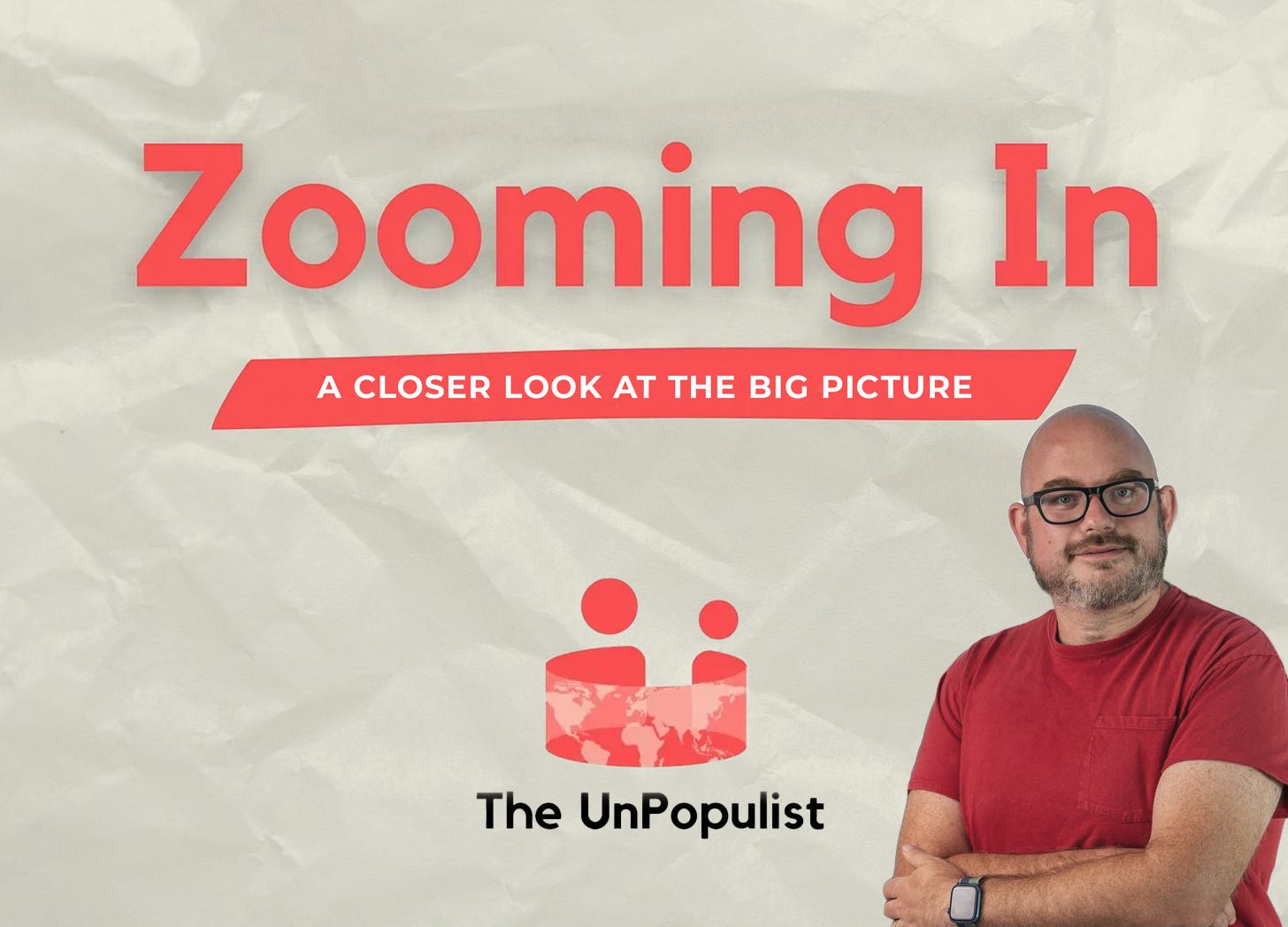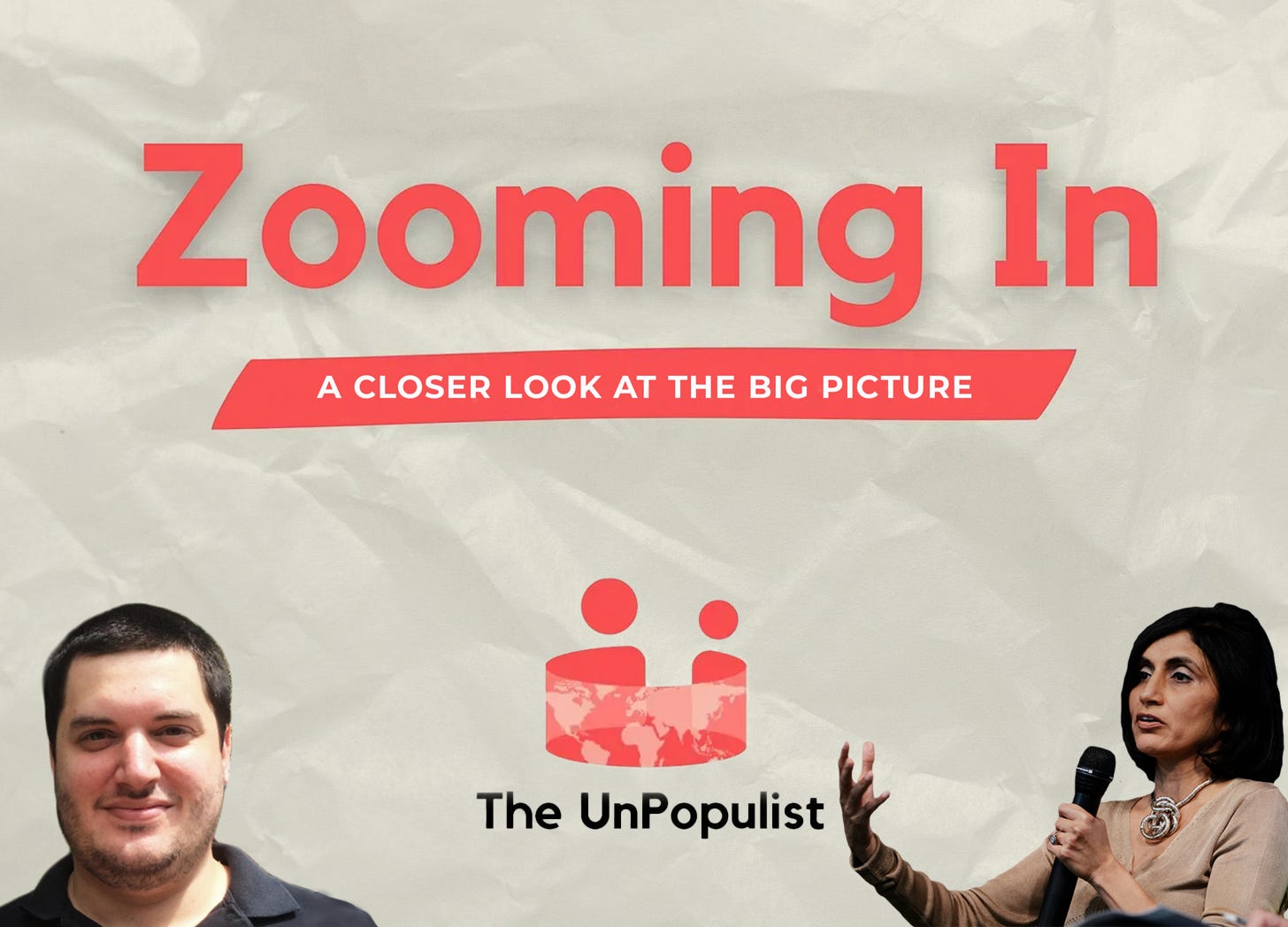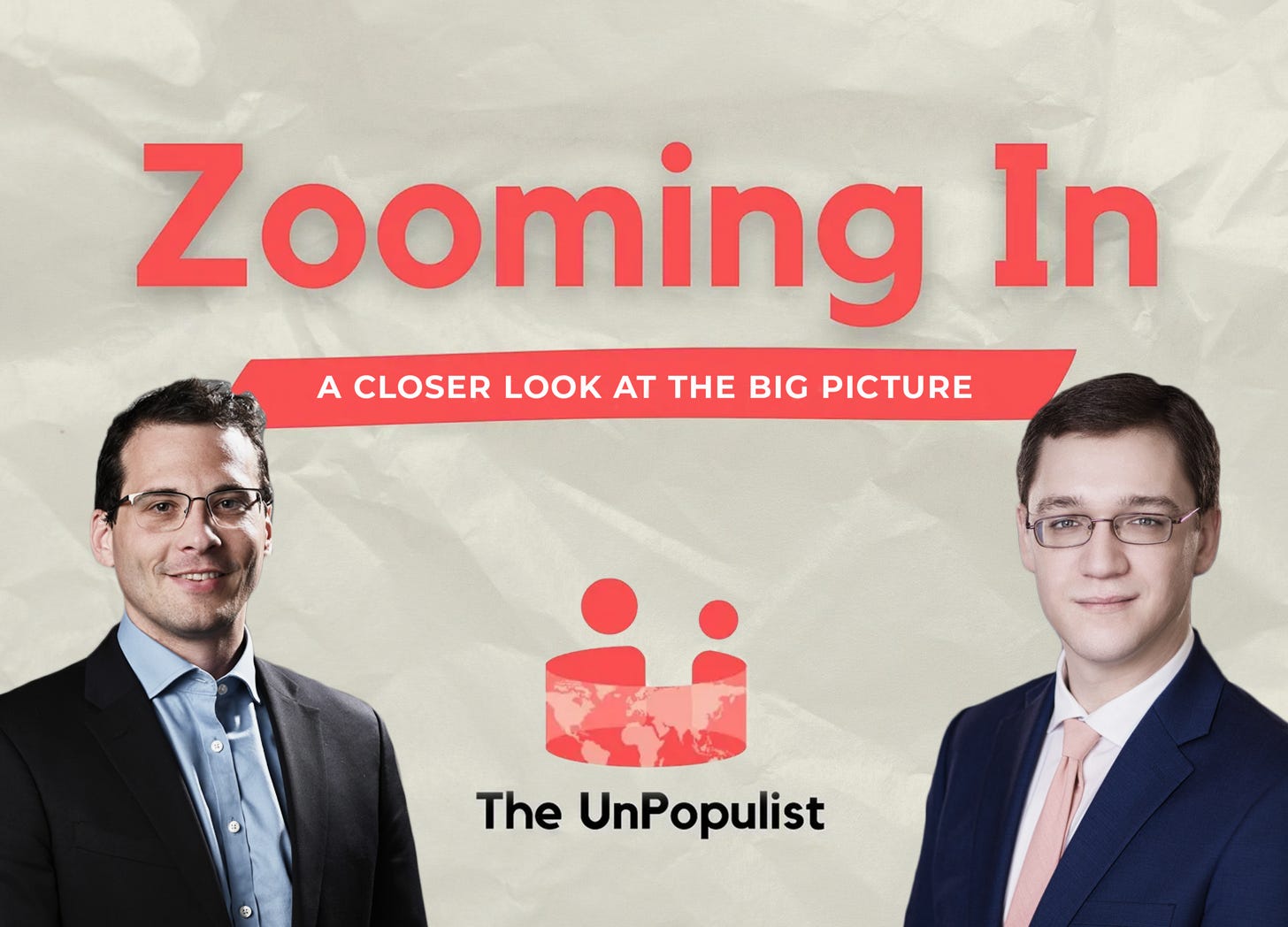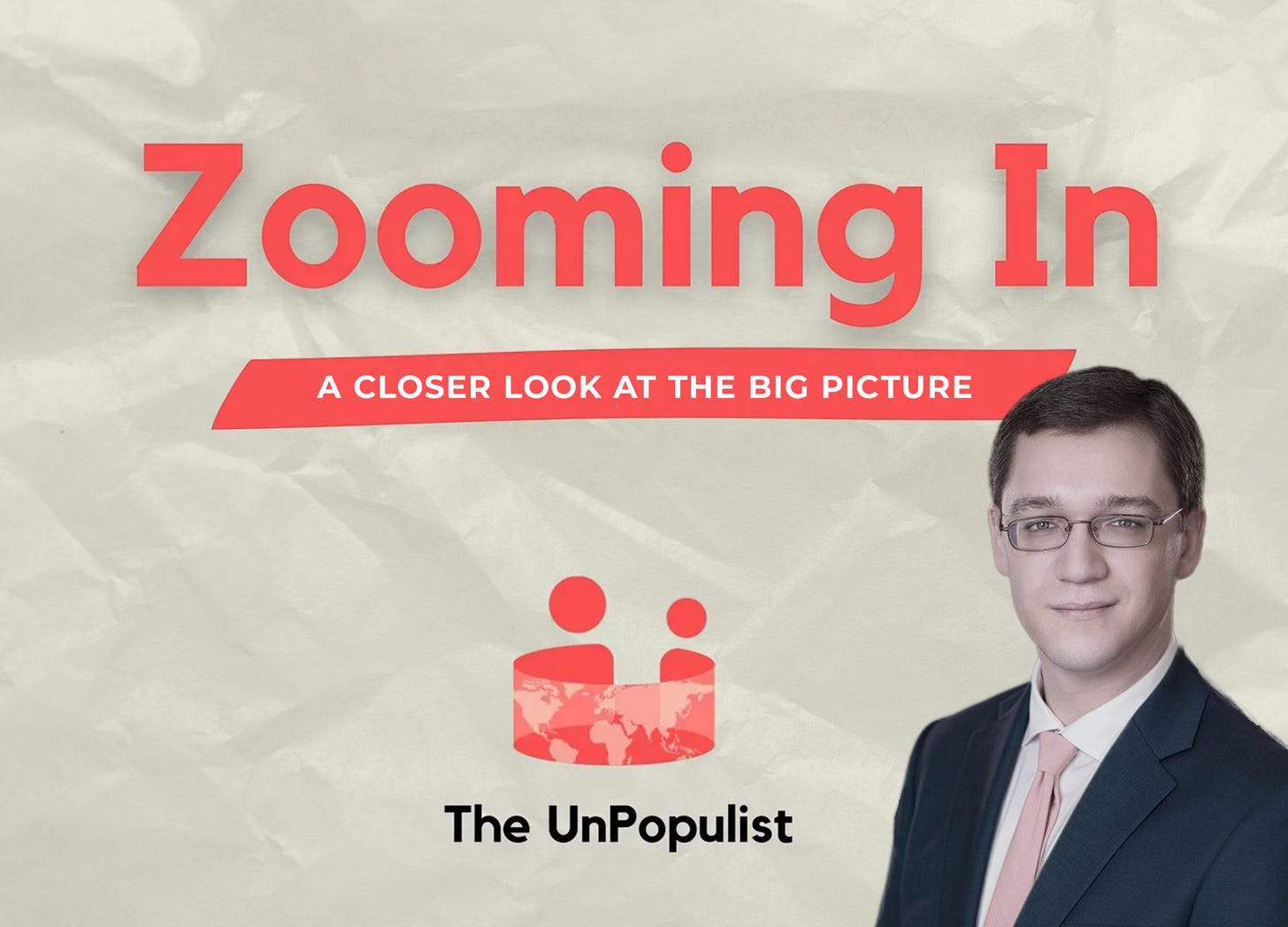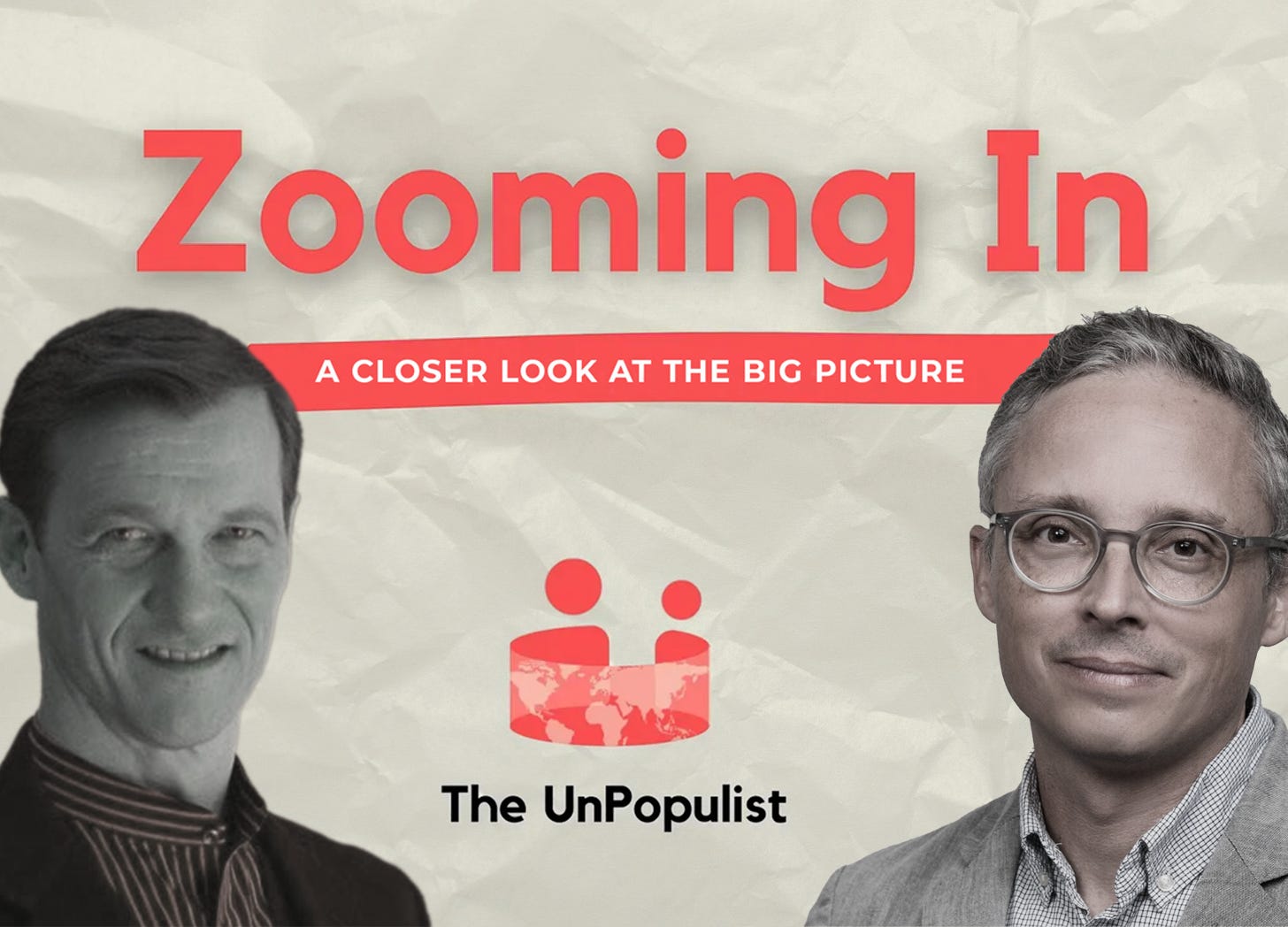Democracies Are Waking Up to Transnational Repression: A Conversation with Freedom House's Annie Boyajian
Description
Listen to Zooming In at The UnPopulist in your favorite podcast app: Apple Podcasts | Spotify | Google Podcasts | RSS
Aaron: Welcome to Zooming In, a project of The UnPopulist. I'm Aaron Ross Powell. Repressive regimes don't like critics, and they aren't satisfied to let their repression stop at the border. When they set their sights on threatening, coercing, or even killing critics who have fled to other countries, it's called transnational repression. My guest today is Annie Boyajian, Vice President of Policy and Advocacy at Freedom House, which tracks instances of transnational repression and helps governments prevent it.
A transcript of today’s podcast appears below. It has been edited for flow and clarity.
Aaron: What happened to [Saudi Arabian journalist] Jamal Khashoggi?
Annie: Great question. We would say that the murder of Jamal Khashoggi is an emblematic case of transnational repression, which is when governments reach beyond their own borders to target critics in an effort to silence dissent. For Mr. Khashoggi, he was lured into a consulate in Istanbul where he was suffocated and dismembered in what is still one of the most shocking cases of transnational repression that we have heard. He was, of course, lured into the Saudi consulate as he was a citizen of Saudi Arabia and a well-known journalist and regime critic.
Aaron: The response to this, I think, speaks to a lot of the issues that you raise in the article that you wrote for The UnPopulist because there seemed to be a lot of anger about this from U.S. citizens, shocked that someone who was a U.S. resident, that this would happen to them from journalists because he was a Washington Post journalist. Then nothing really happened. The perpetrators, the ultimate perpetrators, skated. There were no consequences. Why not?
Annie: I would say it's the age-old answer to why things don't happen to other human rights abusers or corrupt actors, and it's because there are politics at play. On the one hand, I would say you did see something happen that was unusual, right? The FBI did an investigation and report that you had senators talk about publicly. That is certainly unusual. There were sanctions of varying levels of strength that were imposed on some of the individuals involved. To your point, the Crown Prince himself, the well-known architect of this, according to reports, nothing has happened to him and he's continued to be a player on the world stage.
I think part of the reason that this issue shocked people and captured everyone's focus and attention is, one, it was incredibly egregious, but two, it really showed how human rights abuses in a country can have an impact, a global impact, in a way that other human rights issues don't necessarily show. It's just so evident because of the reaching into another country, because of the violation of sovereignty, how the security and human rights issues interact and interplay here. I think that's part of what was so shocking about it.
Aaron: How often does this sort of thing happen?
Annie: We have a database that looks at instances of physical transnational repression. That's things like assassinations, so the Jamal Khashoggi case, but also assaults, detentions, deportations. We have tracked, since 2014, 854 incidents of transnational repression committed by 38 governments in 91 different countries around the world. That is just a drop in the bucket. Our database does not include the indirect tactics, and that's things like spyware, and the use of spyware is so widespread right now, digital harassment, coercion by proxy.
We do think that the database paints a clear picture of the threat posed by transnational oppression and what is happening. We do see additional governments engaging in transnational oppression as we track information in our database. In 2022, I think we saw two additional governments added.
Aaron: You said 38 countries in the current date. How spread out is that? Is this something where there's a lot of it's happening across a lot of countries, or is it heavily concentrated among a small handful of regimes?
Annie: Great question. I would say the majority of countries engaging in transnational repression are countries that are rated as not free in our Freedom in the World Report. Our top 10 offenders are responsible for 80% of all of the incidents we have in our database. That is China, Turkey, Egypt, Russia, Tajikistan—I'm probably not remembering them all in order—but it's also Uzbekistan, Turkmenistan, Belarus, Rwanda, Iran, that's the top 10. And 80% that's significant, but it's global. It's in Asia, it's in Latin America, it's in the Middle East, it's everywhere.
This is partly because we are such a globalized world. We have tracked at Freedom House 17 consecutive years of decline in democracy around the world. That has been driven, in part, by worsening repression at home. Because we're so globalized, we see people flee, and it's easier sometimes for people to flee now than previously. It's also a lot easier for governments to engage in transnational repression. You can get spyware very cheaply. The digital age, where everyone needs to be online, and everyone is connected has made it very easy for governments to target dissidents and critics, even after they've fled abroad.
“We have tracked at Freedom House 17 consecutive years of decline in democracy around the world. That has been driven, in part, by worsening repression at home. Because we're so globalized, we see people flee, and it's easier sometimes for people to flee now than previously. It's also a lot easier for governments to engage in transnational repression.”
Aaron: Just staying for a moment on definitional questions, how narrowly tied to, I guess, the state does it need to be to count? What I'm thinking of is you can have an instance where the state leadership basically hires people or sends its own people off into another country to assassinate someone. It's like a very direct tie. Then you might have something like the Salman Rushdie situation, where it's more just we're going to foment a lot of anger at a given person and then hope violence against them falls out of it. Does that count as well?
Annie: Great question. We do look at non-state actors who are tied to governments. For our definition, there would need to be some sort of clear linkage between the government and the actor. For example, when a government hires private investigators to surveil, technically, whether those investigators know it or not, they would be engaging in transnational repression. You also have instances where governments have been linked pretty clearly to organized crime or other individuals who are, thugs for hire who will go intimidate and beat people up. That would count.
I think it gets a lot more tenuous if it's just anger fomented at someone like Salman Rushdie. That's less clear for the purposes of our database. There are indeed non-state actors who have been involved.
Aaron: Can you talk a bit about the link between this and accusations of terrorism? I found that an interesting part of the argument of basically claiming critics are terrorists.
Annie: Yes, absolutely. We see governments around the world copy laws or arguments made by democracy for their own purposes all the time. We definitely see this in the case of terrorism. The pervasive use of the term terrorist following the 9/11 attacks by the U.S. and other democracies made it easier. I'm not saying here we should not have called those individuals terrorists. I'm not speaking to that at all.
There are a lot of governments now who the first thing they will do when you try to say, "Excuse me, you are targeting someone because they are a critic." They'll say, "No, I'm not. This person is a terrorist." They will toss all sorts of spurious charges at them. This in the case of Russia, of China, of Iran. The government of China is responsible for 30 percent of all the cases in our database. They'll say, "Oh, they're inciting violence or a national security threat. They're a terrorist."
“The government of China is responsible for 30 percent of all the cases in our database. They'll say, "Oh, they're inciting violence or a national security threat. They're a terrorist."“
It's one of the top things we see, one of the top excuses that governments use in going after critics. One of the things we talk about with policymakers is just being really aware and not taking some of these charges at face value, particularly when the government's making the allegations are ones we have documented as engaging in transnation


